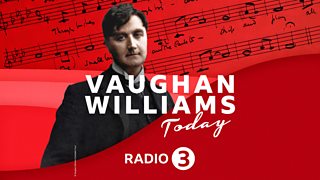
Crisis, Climax and Close
Kate Molleson questions whether Ives edited his early compositions to write himself into avant-garde history.
Kate Molleson questions whether Ives edited his early compositions to write himself into avant-garde history.
Charles Ives is considered a leading American composer of the early 20th century. Known for many musical innovations, his was a unique voice, a pioneer who combined elements of Western and American music traditions. Heâs also been called a Yankee Maverick and much of his creative life was spent in obscurity. Marking the 150th anniversary since his birth, Kate Molleson shines the spotlight on the life and music of Charles Ives. This journey begins in Danbury where Ives grew up, going on to study at Yale, then working in Insurance in New York, and coming to a close in the mid twentieth century. In those final decades, and largely due to ill health, Ives had stopped composing. Ironically, it was at this point when his creative endeavours had ceased, that his music started to generate much interest.
In 1927 Charles Ives came down from his music studio at the top of his house and told his wife Harmony, âI canât compose any more.â Ives would live for nearly another two decades, and though he had stopped composing, he did see interest in his music greatly increase not only in America, but in Europe too. Composers such as Henry Cowell and Lou Harrison would be advocates of Ives, conducting performances of his music, and helping to edit and prepare his music for publication as well. The composer Igor Stravinsky thought that Charles Ives was greatly ahead of his time, although there are questions as to whether some of the music of Ives, was not originally as dissonant and forward looking as it would later become. Towards the end of his life Ives was too ill to attend the premieres of his works, but the reception to his music had changed from hostility to adoration. When the pianist John Kirkpatrick premiered the Piano Sonata No 2, he was called back on to the stage seven times by the cheering audience.
A Christmas Carol
The Norwegian Soloistsâ Choir
Grete Pedersen
Three Quarter Tone Pieces (Allegro)
Joel Sachs, piano
Cheryl Seltzer, piano
Symphony No 4 (Allegretto)
Jerome Rosen, piano
Boston Symphony Orchestra
Tanglewood Festival Chorus
Seiji Ozawa, conductor
Sunrise
Tamara Mumford, mezzo-soprano
Jooyeon Kong, violin
Douglas Dickson, piano
Piano Sonata No 2: Concord, Mass., 1840-60 (The Alcotts)
Marc-Andre Hamelin, piano
Symphony No 3 âThe Camp Meetingâ
Lucerne Symphony Orchestra
James Gaffigan, conductor
Produced by Luke Whitlock
On radio
More episodes
Next
You are at the last episode
Broadcast
- Fri 18 Oct 2024 16:00±«Óătv Radio 3
Vaughan Williams Today
Beethoven Unleashed â the box set
What was really wrong with Beethoven?
Composers A to Z
Who knew? Five eye-opening stories from Composer of the Week
Five reasons why we love Parry's Jerusalem
What is the strange power of Jerusalem which makes strong men weep?
A man out of time â why Parry's music and ideas were at odds with his image...
The composer of Jerusalem was very far from the conservative figure his image suggests.
Composer Help Page
Find resources and contacts for composers from within the classical music industry.





